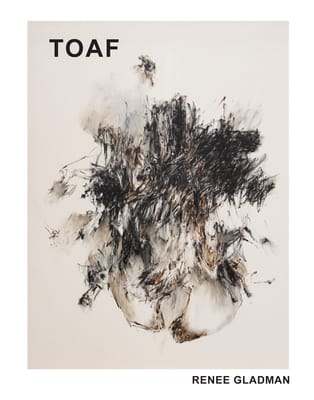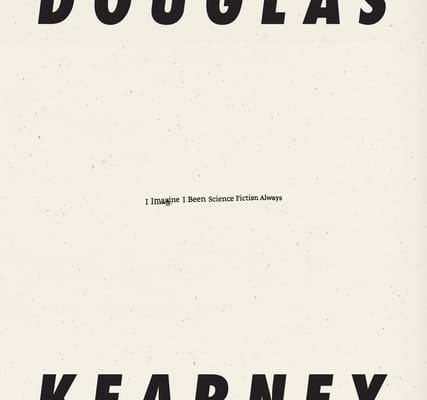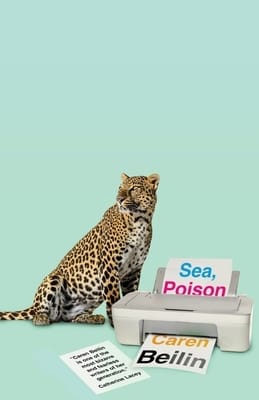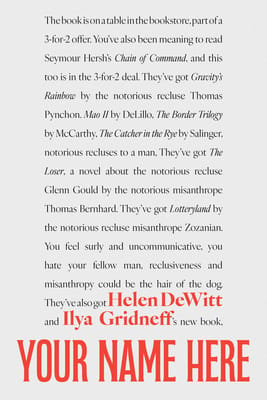- Josh's Newsletter
- Posts
- Yesterday Today Tomorrow Forever: Recommended Books August 2025
Yesterday Today Tomorrow Forever: Recommended Books August 2025

Hello Readers,
Probably should’ve hyped this more, you know, before it happened but I participated in a great conversation about how we fight against book bans. You can see it here. It’s a wide ranging conversation about the history of censorship and what we can do today. The phrase that I’ve landed on to describe how I’m thinking about my activism, that I think is broadly applicable, is: focused, collective action, in solidarity with other movements. You can’t save the whole world by yourself, but get a few folks together and you can save part of it. The whole world is made up of everyone’s little part of it so if we all save what little part we can, that ends up saving the whole world.
Furthermore, I think reading and writing, especially physical reading and writing like in books, zines, printed newsletters, journals, diaries, etc, are a vital part of the fight to protect what we have now while helping to build a better future, not because I think books are some inherent force for good in human society but because I think the type of thinking we can cultivate while reading and writing is less vulnerable to being bulldozed by propaganda and has the longer narrative memory needed to keep better tabs on our governmental and economic leaders and because whatever potential it may still have for communication and community building the attention mining, enshitification, and biased algorithms of contemporary digital media has made it a handmaiden for fascism and ecological collapse. As I said when running through this idea on BlueSky, at least an AI bot can’t scrape your diary to help steal your job.
Obviously, I’m not arguing for a complete abandonment of digital media (I certainly don’t have the time or resources to turn this into a print newsletter) and I do believe the potential for community building still exists in digital media. But if you’ve ever toyed with the idea of keeping a journal or diary or reviving the old tradition of family newsletters, now is the time for it. Oh and keep buying books. Preferably the ones I recommend. :)
P.S. If you like what I’m doing here the best way to support it is to help grow the list of subscribers, so tell your friends you enjoy it and share the sign up link around. Thank you!
YESTERDAY
To After That by Renee Gladman
In this house, we stan Renee Gladman. A new edition of To After That was released last year along with My Lesbian Novel, but I was focused on the later so TOAF had to wait until a couple of weeks ago when I stumbled onto it doing something in my library and decided, “Sure, it’s been a year since I’ve read some Gladman. It’s short, let’s do it.” Now it’s going to be my staff pick next month.
You could base an entire writing course around this slim volume in which Gladman considers, analyzes, explores, remembers, & wonders about a novella (After That) she failed to publish. The questions Gladman asks herself, the goals she talks about, her observations about the writing process and the nature of fiction could all prompt essays and other deep considerations on the craft of writing. I think the most important idea in TOAF is one that I’m not sure Gladman ever directly articulates: there really is no such thing as a failed novel. Some novels are able to teach some significant number of readers, of course. Some novels can succeed for other people. But other novels are only able to teach the people writing them. Other novels are only successful for an audience of one. These are the novels that end up in drawers with some of amount of progress on them less than whatever is required to get them published. They can be frustrating for a writer, all that work that no one else will ever get to see and though I certainly share that frustration for some pieces, I also try to remind myself what the actual point of all this effort is.
TOAF is in conversation, really in direct conflict, with the claim that you can write a book using ChatGPT, a claim that fundamentally misplaces the point of writing books. (In really destructive ways!) The “point” of writing a book is the impact the process of creating it has on the person writing it. (Or, at least, a work of art, though I’d guess the vast majority of entertainment writers write to entertain themselves first.) The primary result of every book is the intellectual and emotional growth of the writer. It’s just that the text created through that process also happens to be able to contribute to the emotional and intellectual growth of other people too. I mean how many times have you heard a writer describe the origin of a book with some version of “I was curious about…” or “I didn’t know anything about…” By taking us into that novella-just-for-her, Gladman makes that fundamental aspect of writing explicit while giving us tools to explore the medium in many other directions.
Another work by Gladman that one could read in an afternoon, that one would then think about for the rest of their lives.
TODAY
I Imagine I Been Science Fiction Always by Douglas Kearney
Expansive yet rooted, mind-bending yet centering. Kearney's linguistic, lyrical, and visual imaginations combine to create unique and powerful poetic objects. A work that feels interstellar while hitting so close to home. I loved Kearney’s previous collection Sho, which doesn’t veer quite as far into concrete poetry, so I was really excited when Wave sent me a copy of I Imagine…
On top of its brilliance as a work in and of itself, I think it would probably be a solid introduction to concrete and other experimental forms of poetry. There are pieces that I guess I’ll call “traditional text,” in the collection as well as at least one piece that moves from traditional text to concrete poetry. Even the pieces that are more collage than poem almost always have some expanse of text for the newby to latch onto.
I Imagine I Been Science Fiction always is my current staff pick so on top of being a great book, it’s 20% off for the month of August at Porter Square Books.
TOMORROW
Sea, Poison by Caren Beilin
Well. OK, then.
A part of me is tempted to just leave it at that because I imagine readers of this newsletter would see that and think to themselves, “The fuck kinda book can get that reaction out of Josh?” (The answer is “One that might be even weirder than Revenge of the Scapegoat.”) Sometimes the key to handselling is stopping the pitch at the right time. But I also think trying to articulate this book is a fun challenge and this newsletter is mostly about giving me space to have fun writing about books, so here we are.
Right now I think I’ve got “Contemporary Bartleby the Scrivener, which means it is cognizant of the impossibility of truly dropping out of society even if you manage to starve yourself to death, written by someone who read Helen DeWitt’s Lightning Bolts and is not afraid to leave us with the idea that utter befuddlement is just the natural state of anyone who truly tries to make sense of the world and the best we can hope for is that the befuddlement itself is interesting, and who may also have a touch, maybe a little more than a touch of ‘Luigi Mangione did nothing wrong’ vibes to, you know, round it all off.”
Sitting with it a little more, I think the central question Sea, Poison asks is: How should a human respond to systems that dehumanize them? (Which seems like a pretty natural continuation of the considerations of Scapegoat.) The absurdity of the text is a natural consequence of that question because it is fucking absurd that we have systems that dehumanize us in the first place. Like, we’re all humans. What a bonkers thing to do? And then, just, like absolutely bananapants that dehumanizing systems don’t just exist, we organize our entire fucking society around them! What would a “normal” book about that shit even look like? What would a “normal” response be?
This speaks to one of the limitations (I could say “dishonesties” if I’m feeling spicy) about “realistic fiction;” trying to preserve a sense of “realism” too often elides how goddamn weird, often nonsensical, reality often is, especially when we’re talking about systems of power. In presenting a world that makes sense, we contribute to the illusion that our world makes sense, which is very convenient for the people who currently benefit from our current madness. But when you are as overtly weird as Beilin is, you’re not compelled to smooth out the grooves that exist in the world to create a coherent narrative. You just juxtapose the weirdness you’ve invented with the weirdness that exists so readers can see their world in a new (and more true I would argue) light.
FOREVER
Your Name Here by Helen DeWitt & Ilya Gridneff
I have tried, I really have, but I simply cannot stick with digital reading, even though I know how much better it is for my small publisher friends if I read digital galleys instead of requesting physical ones. But 10 (maybe more) years ago, I was still trying and when someone offered me a PDF version of book by Helen DeWitt I obviously said yes. I didn’t make it that far into its obviously brilliant weirdness, but a couple of fancy ereaders later it’s clear that’s more of a me and the medium problem than Helen and Ilya’s. I remember thinking at the time that it might be the great 9/11 novel we’ve always needed but no one else had the courage to publish.
But it seems like nothing about DeWitt’s publishing career can go in a straight line, so obviously Your Name Here had to languish, even after Lightning Bolts came out (which I might argue is one of the great anticapitalist novels, is certainly one of the great anticorporate novels, and probably should be thought of alongside Lolita in terms of exploring the power of language to corrupt and to be corrupted in turn), even after The Last Samurai was rereleased by New Directions, and even after her short story collection Some Trick garnered some mainstream awards. Furthermore, even though her novella The English Understand Wool, which had something of a mainstream breakout, was also published by New Directions, seemingly cementing DeWitt as a “New Directions Author,” Your Name Here is being published by Dalkey Archive.
Which is fine. Dalkey is the perfect fit for Your Name Here. I’d argue Dalkey was founded specifically to publish books like it.
In some ways, even I’ve twisted things around a bit here for the book, using that old PDF as an excuse to to cram it into the Forever part of this newsletter even though you’re getting pre-order links below and I fully intend to read the whole thing when I get my hands on a physical copy. But it’s my newsletter and the Yesterday Today Tomorrow Forever headings are more structures for my consideration than strict rules or categories, even though I try to stick to them. And I’d love to see Your Name Here do something to solidify DeWitt’s publishing career. It’s hard to imagine it getting the kind of mainstream attention required for that (just wait till you see its opening first few pages) but you never know. I’ll keep doing my part.



